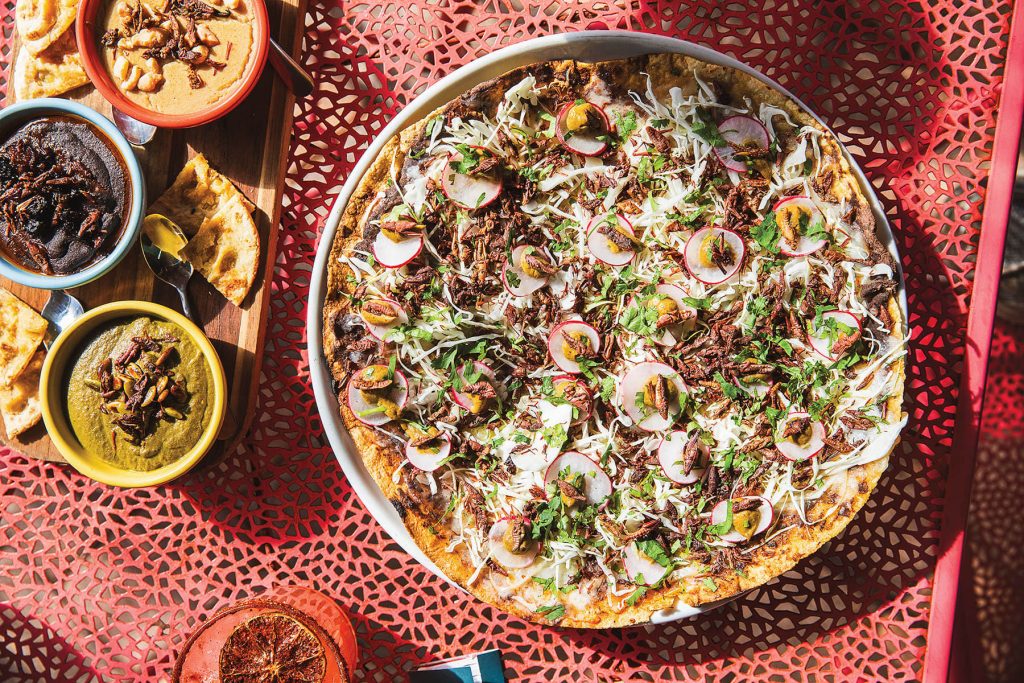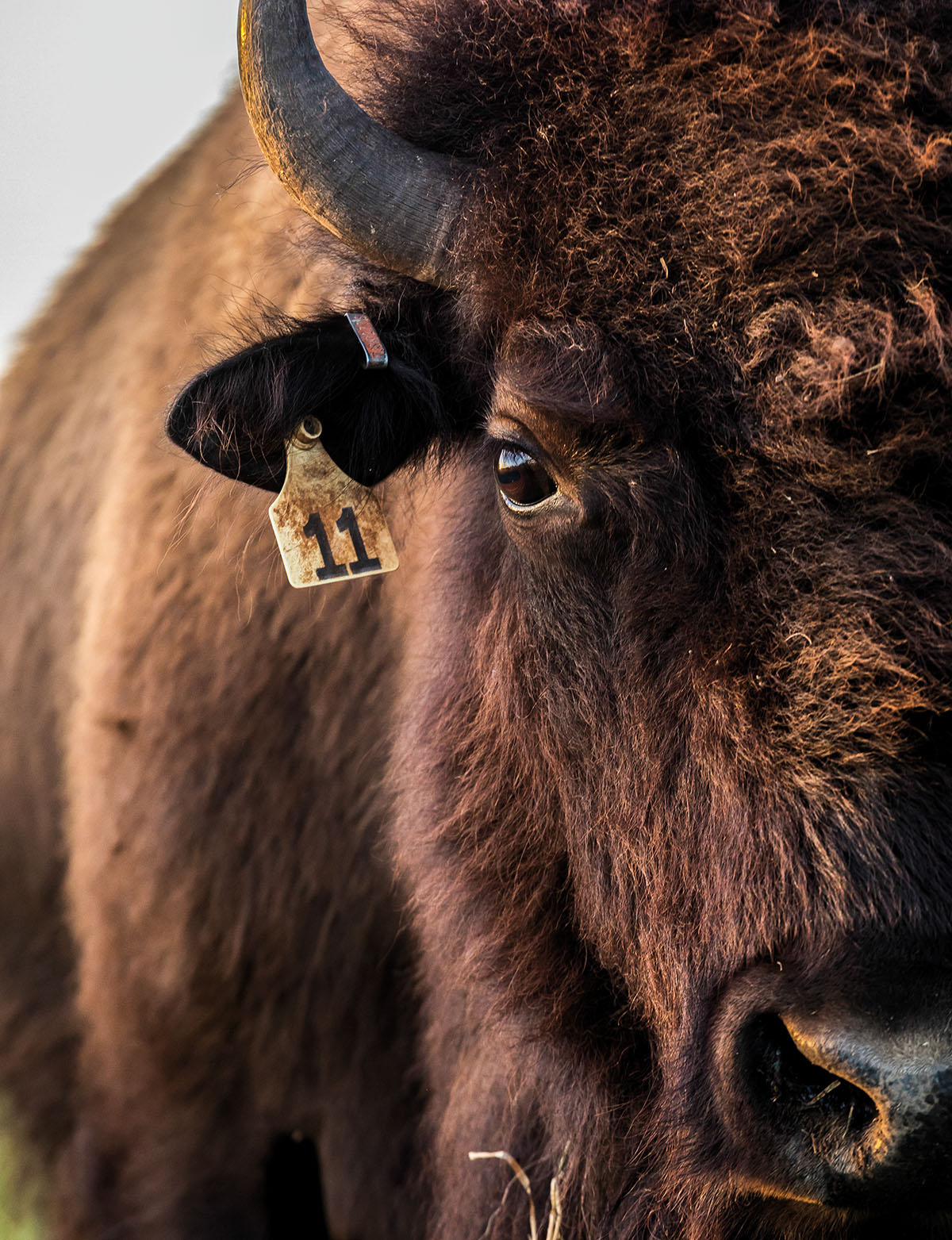
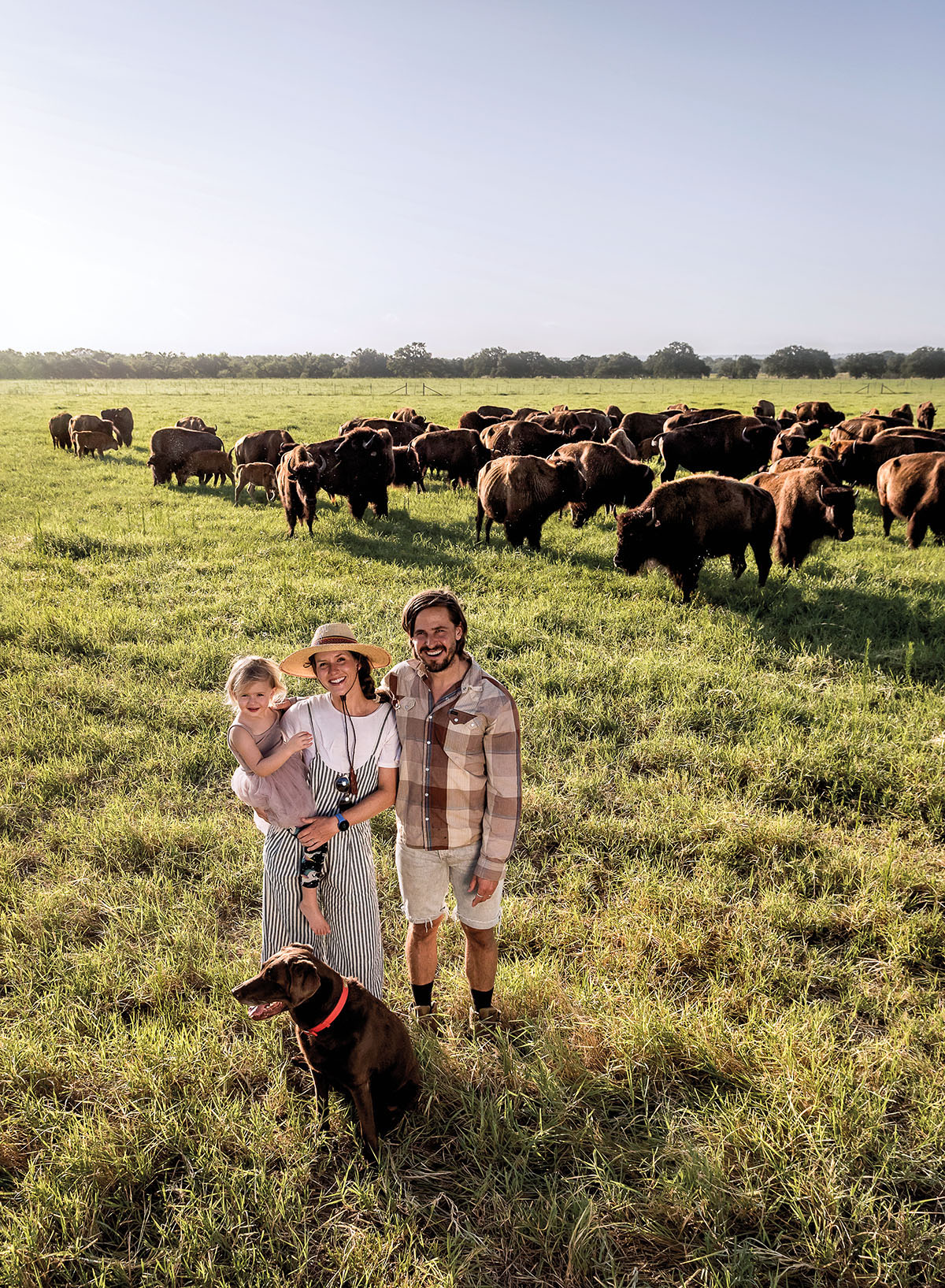
If you’re a young couple who just sold your company for a princely sum, you might be tempted to buy the most lush, pristine acreage you can find and live in luxury.
But not if you’re Taylor Collins and Katie Forrest.
The husband and wife founded EPIC Provisions, a protein bar business inspired by their Paleo lifestyle, which follows a diet that relies heavily on meat, nuts, seeds, fruits, and vegetables. The snacks are a fusion of jerky and energy bars, with flavors like chicken sriracha and wild boar with bacon.
ROAM Ranch
Fredericksburg
roamranch.com
After three years in business, EPIC sold to General Mills in 2016 for $100 million, according to Inc. magazine. The following year, Collins and Forrest purchased 450 acres of overgrazed and overfarmed ranchland along the Pedernales River, just east of Fredericksburg. Their goal is to rehabilitate the land without using herbicides, pesticides, or any other artificial means—and to share their knowledge and passion with others through on-site events and tours.
“This land was spent out,” Collins says, as we stroll through a meadow of native grasses on the property named ROAM Ranch.
The couple is determined to demonstrate that by practicing regenerative agriculture, they can resurrect this once-fertile river valley. Regenerative agriculture is a system of farming and grazing that improves soil health and the water cycle, and eventually mitigates some of the effects of climate change. They hope their example will inspire other ranchers to adopt similar methods.’
“Sustainability only preserves the status quo,” Collins continues. “You wouldn’t want that in a marriage, either.”
ROAM Ranch now comprises 600 acres, plus 300 acres of neighboring property, which the couple leases. The farm management team, Cody and Julia Spencer, runs the ranch’s day-to-day operations.
As I enter the ranch grounds, two leviathan dogs rise, tails wagging, from their grassy beds near the driveway. “That’s Carnage and Savage, our guardian dogs that protect our livestock from predators,” Forrest explains. “We allow them to hunt for their food to keep them focused on their jobs.”
The livestock to which she refers includes not only a herd of 140 majestic bison, but also chickens, ducks, pigs, and heritage turkeys. During my mid-November visit, a number of the turkeys are enjoying their final day before being slaughtered for Thanksgiving feasts. (They were all reserved beforehand.)
We clamber aboard a utility vehicle with the couple’s 3-year-old daughter, Scout. After passing through a gate with a small sign reading “What good shall I do this day?,” we’re en route to view the bison. The massive beasts are contained to a few acres with temporary electric fencing.
“We rotate their pasture every few days,” Collins explains. “Each bison produces 50 pounds of manure a day, so frequently moving the herd not only mimics their natural grazing patterns, it continually fertilizes the soil and spreads native seeds contained in the manure, while their sharp hooves till the soil naturally.”
The large flocks of chickens and turkeys, going about their daily business of pecking, scratching, and pooping, are also rotated throughout the ranch to aid in replenishing the soil.
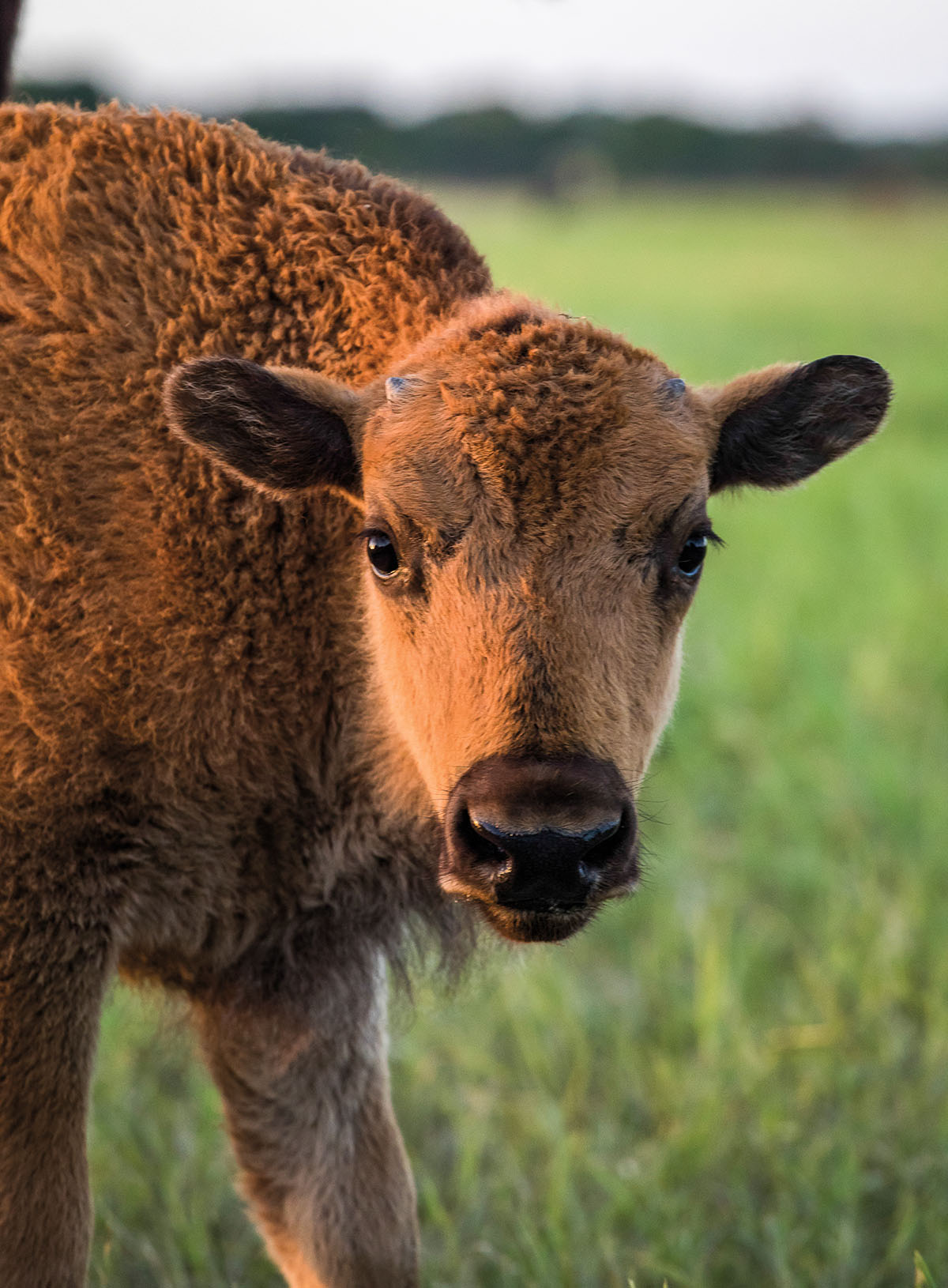
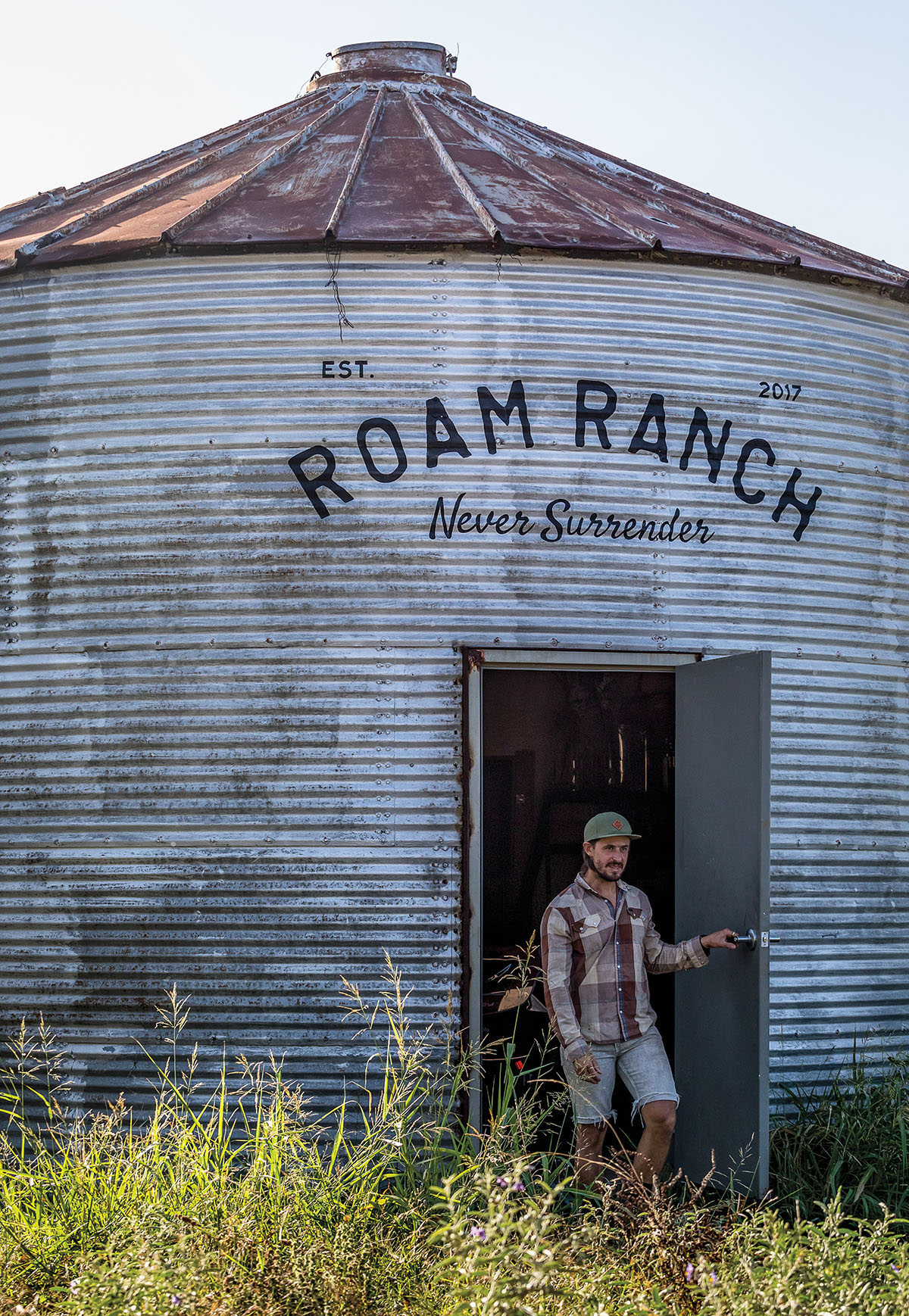
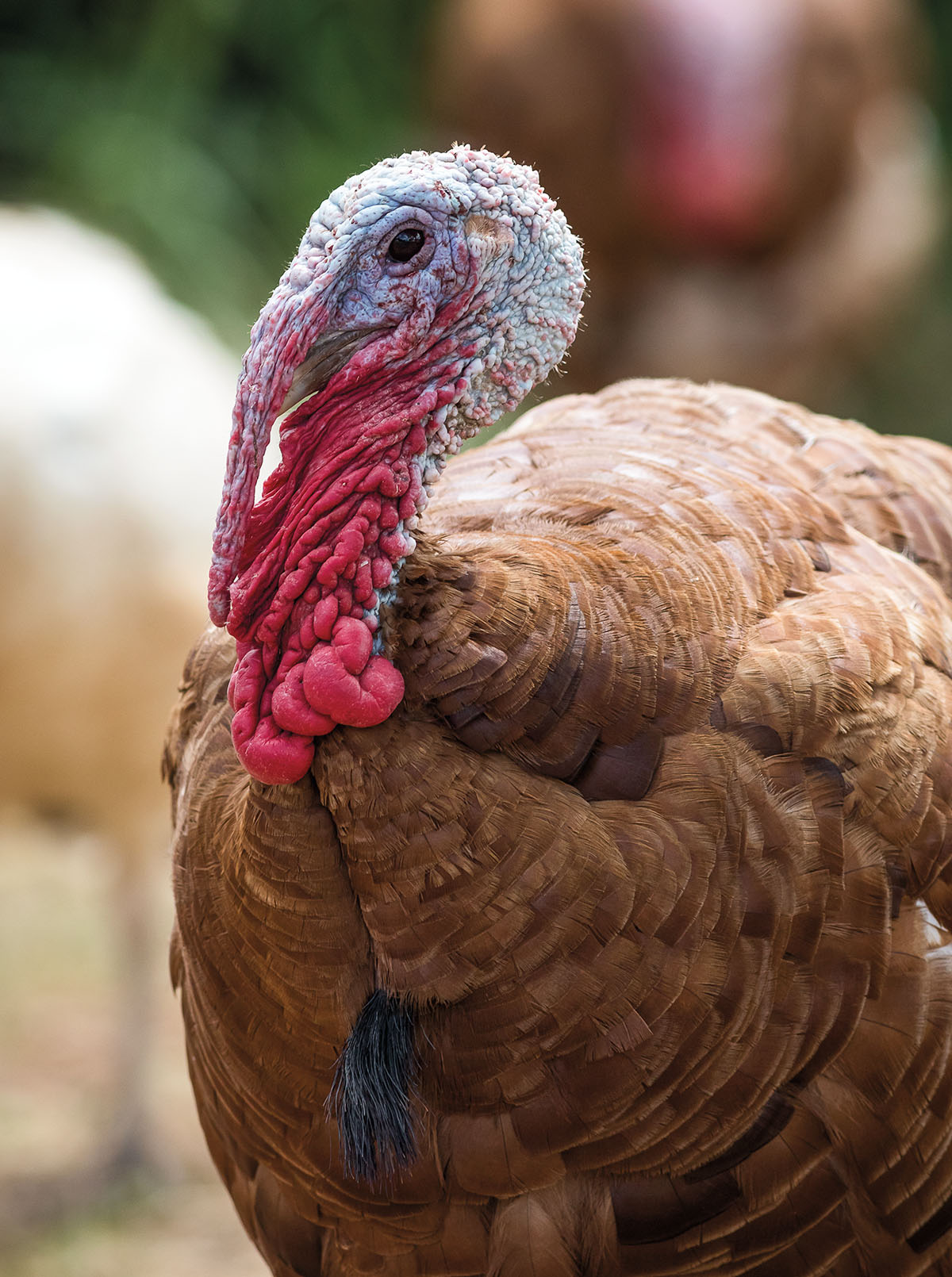
Scout recognizes individual bison by name—an ear tag adorns each one. “Living on the ranch connects her with where our food comes from in ways that typically surprise others,” Forrest says. “She graciously thanks the animal it came from, saying, ‘Thank you, Muddy, your meat is sooo delicious!’ The absorption of complex concepts comes natural to her because she’s experiencing them as opposed to learning them.” ROAM Ranch also sells the meat it raises to the public.
Another way the family remains constantly aware of the land that surrounds them is through the two buildings that comprise their house. One building has the living area and the other contains the bedrooms. They have to walk outside to access each space.
“We did this intentionally as a way to constantly be in contact with the elements,” Forrest says. “It has created a stronger connection and awareness of our surroundings in unexpected ways: always acutely aware of weather patterns, where our peacocks are enjoying their day, what the guardian dogs just hunted, and so on.”
A guest cabin ensconced in the heart of the ranch is available for rent. Spartan yet cozy, it sports a spacious living/sleeping room, plus a full kitchen and bath. It’s the ideal place to stay when taking part in ROAM Ranch’s myriad events and activities.
The ranch hosts seasonal tours that delve into regenerative agriculture and can be tailored to the general public or landowners wishing to incorporate these methods. Jesse Griffiths, the chef at Austin’s Dai Due, hosts a program where guests can learn how to hunt and cook axis deer through his New School of Traditional Cookery. A guided hunting experience on the ranch includes lessons in tracking, stalking, shooting, field-dressing, and butchery of wild game, followed by preparing a meal in the large, screened-in outdoor kitchen. ROAM Ranch’s third annual trail race, The Stampede, scheduled for April 2021, comprises a 10K, a 30K, and a kids’ fun run.
Outreach and education are core to the couple’s beliefs. “As of July, all of our events are back on,” Forrest says. “People are desperate for fresh air, good food, purpose, and human connection—and we can offer all of that here at the ranch.”
Collins and Forrest could very well never labor again in their lives, but their passion in challenging accepted systems keeps adding more to their plates, which is perfectly fine by them.
“Taylor and I have always just built things for ourselves that we need,” Forrest says. “Things that don’t yet exist—as opposed to trying to fit into what does exist.”
Upcoming Events
ROAM Ranch is hosting several events this fall. On Oct. 17, a two-hour ranch tour gives a general overview of regenerative agriculture ($35). For those wanting to delve into the topic, the Regenerative Agriculture Bootcamp on Nov. 7 ($75) teaches farm and ranch owners how to implement certain techniques. Two turkey harvests on Nov. 21 and 22 allow guests to harvest, butcher, and prepare a heritage turkey for Thanksgiving, while learning about how the turkey was raised ($150 per family). Register for these events at roamranch.com



